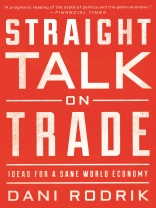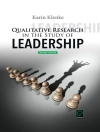An honest discussion of free trade and how nations can sensibly chart a path forward in today’s global economy
Not so long ago the nation-state seemed to be on its deathbed, condemned to irrelevance by the forces of globalization and technology. Now it is back with a vengeance, propelled by a groundswell of populists around the world. In Straight Talk on Trade, Dani Rodrik, an early and outspoken critic of economic globalization taken too far, goes beyond the populist backlash and offers a more reasoned explanation for why our elites’ and technocrats’ obsession with hyper-globalization made it more difficult for nations to achieve legitimate economic and social objectives at home: economic prosperity, financial stability, and equity.
Rodrik takes globalization’s cheerleaders to task, not for emphasizing economics over other values, but for practicing bad economics and ignoring the discipline’s own nuances that should have called for caution. He makes a case for a pluralist world economy where nation-states retain sufficient autonomy to fashion their own social contracts and develop economic strategies tailored to their needs. Rather than calling for closed borders or defending protectionists, Rodrik shows how we can restore a sensible balance between national and global governance. Ranging over the recent experiences of advanced countries, the eurozone, and developing nations, Rodrik charts a way forward with new ideas about how to reconcile today’s inequitable economic and technological trends with liberal democracy and social inclusion.
Deftly navigating the tensions among globalization, national sovereignty, and democracy, Straight Talk on Trade presents an indispensable commentary on today’s world economy and its dilemmas, and offers a visionary framework at a critical time when we need it most.
Om författaren
Dani Rodrik is the Ford Foundation Professor of International Political Economy at the John F. Kennedy School of Government at Harvard University. He is the author of
Economics Rules: The Rights and Wrongs of the Dismal Science and
The Globalization Paradox: Democracy and the Future of the World Economy.












